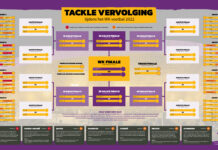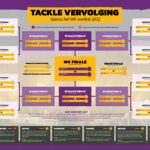Many who read the book of Isaiah find it confusing and others even controversial. From the content of the book it becomes clear that also in Isaiah’s own generation he was quite controversial. Despised even (Is 53:1). The main part and central theme of his book is about the condemnation of Israel’s crimes (Is 1:4), in which they even surpassed the heathens in his days (Is 41:24). Since Israel committed them with foreknowledge of God’s will. The heathens lack such knowledge. Therefore it is plausible that the apocryphal manuscript Martyrium of Isaiah, on Isaiah’s assumed death by torture ordered by the Judean king Manasseh, is based on true facts. Therefore it can be regarded as a miracle that Isaiah’s book was added to the Bible.
By Marco van Putten
During Isaiah’s life he was however honored by some Israelites. His prophecies touched them. Especially them that hated the cruel elite. Israelites which understood that God sends prophets by definition when things were not going in the right direction with Israel from God’s point of view. They are send to its leaders in particular. But this can only partially explain why his book was added to the Bible. The most important reason has to be explained from its content. The main theme of the book, following the main theme which announces Israel’s exile, is announcement of Israel’s future restoration from its exile and the God’s consequential reckoning with the nations who were hostile to Israel. Since that message is consistent with the rest of the Bible. Also consistent with the Bible is that Isaiah kept prophesying about the whole of Israel (12 tribes). This is remarkable, since Isaiah was prophet in Jerusalem and Judah (Is 1:1). What is also important is that the book puts God central. God’s wisdom and acts of man, also those of Isaiah, kings or Messiah’s, are kept out of the forefront. The book is particulary Theocentric. The way in which God is presented (His Characteristics, the way He acts, His Will; Is 45:5) complies with how He is presented in other Bible books. This book, however difficult to swallow for Israel, had to end up in the canon (the authorized set of Bible books). It was inevitable. Even more so since some of his prophecies were fulfilled.
That does not mean that the book always concurs with other Bible books. For instance, the high concentration of deviating propositions and radical new revelations, which often reject the known tradition, make this book unorthodox. Take for example the persecution of pious Israelites by their own kinsmen as mentioned in this book! This introduces the concept of ‘suffering for faith’ (Is 5:23; 53:3). Also, in this book the Torah of Moses is (seemingly) trespassed in various ways. Since the Torah demands that prophecies are fulfilled during the lifetime of the prophet (Dt 18:22). However, most were not. Then there is the very sensitive main theme of the banishment of Israel by God (Is 5:13). This seems blasphemy, since the Torah states that God has eternal love for Israel. Therefore repeatedly very serious questions have been asked about Isaiah’s inspiration by God. Even more so from the viewpoint of his own generation. They that heard him for the first time. These, by the way, also make the teachings of the New Testament (NT) for Israelites very hard to defend, since the NT relays most, out of all the prophetic books, on Isaiah.
It should not be forgotten that God explicitly meant the book Isaiah to be confusing and incomprehensible for the majority of his audience (Is 6:9-10). In Isaiah specific subjects are often not explicitly mentioned, but in a way which is covered, hidden and implicit. Unique names and words are used that seem incomprehensible, like ‘Seraphim/Seraphs’ (Is 6:2) and ‘Ariel/Fireplace’ (Is 29). Also, prophecies seem to constantly address the same subjects, like the exile of or the war against Israel. Only after studying them carefully it becomes clear that almost always they cover several types or forms of those subjects over separate time periods. Therefore it is quite difficult to determine which prophecies are (partially) fulfilled or still completely unfulfilled. On the other hand, it must also be considered that large portions of texts are completely fulfilled in Isaiah’s own generation or not long after his death. These are, in prophetical sense, to be regarded as of no relevance for the generations that followed. Still, prophecies seem to have multiple (further) fulfillments. To separate them out and give clarity is only given to people with extraordinary wisdom.
According to the Bible, God has given each generation people who will reveal the (partial) fulfillment of prophecies important for that generation. That would mean that an upcoming (partial) fulfillment cannot be known in advance, but only when God has given the time for its revelation. If this is so, then this shows the limitation of the ability to explain the Bible. But it also unmasks that the truth and surety that the church and/or universities gives to its teachings cannot wholly be eternal. The same applies to highly esteemed Bible explanations and Bible sciences in general. Not only are the workings of the Spirit of God and God’s acts of salvation in ways which are fundamentally unscientific. They, are also aimed at each individual generation and often bound to each generation. This is in itself unscientific, since science is only about that which always applies.
It is safe to state that the book of Isaiah, as a consequence of its characteristics, has previously been interpreted wrongly or has been applied outside of its context. For example, most Jewish commentaries have ignored the fact that all of Isaiah’s prophecies about the recovery of Israel are unfulfilled or only partially fulfilled. This is often done for the benefit of Zionism. Likewise, Christian commentaries connect too much value on sometimes questionable and weak NT interpretations of Isaiah. Most forget that these NT interpretations only had a specific purpose in that generation; the defense of the renewed religion. Also, these commentaries often use the crooked and wrong Septuagint (Greek translation of the Old Testament (OT)) instead of the Hebrew Bible translations of their days. Christians often make these wrong choices for the benefit of their dogma’s en (theological) theories.
The book of Isaiah is Israelite of nature. This means that the mindset and the priority of the book are determined by those Israelites of Isaiah’s generation that lived within the frame of the Torah of Moses. It is therefore remarkable that in this book Israel is not put central, but that it has great interest in the nations, humanity and Creation. Hence, it seems likely that even Isaiah needed to undergo a development of his believes to understand the future God ‘showed’ him. The most noticeable prove of this is seen in his prophecies from chapter 40 onwards. From that point on he seems to have learned to look further then his beloved city of Jerusalem, the monarchy of Israel (the house of David) and even the Temple (Is 66:1). He seems to have understood the temporary benefit of Messiah’s and even of the final Messiah-King, because he ultimately reaches the vision on the New Creation. Then the new people of God (Is 55:5; 66:22) will be in perfection. Then Abraham, the people of Israel (Is 63:16) or its history – commemorated in the feast of Passover, Pentecost and the feast of the Tabernacles – will no longer be relevant (Is 66:23). He ends with a worldview in which only God is central to man like never before. So, the book develops unto a climax, but fixed on things which are important from God’s perspective, especially since in the book God Himself speaks more than the prophet.
This article is meant to challenge readers to check whether what is brought forward to them about the book is really true. The problem is that in each generation of God’s people skilled Bible teachers are quite scarce. However, it is sad that the Bible teachers God gives to each generation often are put aside (Is 30:20) for the benefit of teachers of untruths (Is 9:14 (15)). The world favors deceit (Is 30:15; Jh 1:11), which affirms God’s election.
In hindsight the book of Isaiah seems the NT in a nutshell since many of his prophecies were fulfilled in detail by the Lord Jesus. With His acts the book of Isaiah suddenly became very topical again and the fulfillments of Isaiah’s prophecies followed each other quickly. From that generation forward they became clearer. The recognition of this is meant to sober up the assumed higher weight of the NT compared to the OT, but also as a positive reevaluation of the OT. However, that wisdom lacks until this day. It must have become clear that the book of Isaiah, not only in length but also in content, sticks out in many ways far above all other Bible books. The book at least is a bridge between the OT tot the NT. Especially when it is recognized that the book contains prophecies about the true Messiah, but also that Isaiah himself is a representative of Him. Since Isaiah fulfills partly his own prophecies. This is however often only partially understood or admitted in Christianity. Courage is needed to see that the Lord Jesus has much in common with Isaiah and that they both were martyrs for God. Each in its own way. Isaiah would then be rated as the unique messianic prophet he was and image of the Lord Jesus could then become a less swollen, but the real coming Messiah. However, it is above all doubt that the book Isaiah reveals that the Lord Jesus is the true Messiah.




















